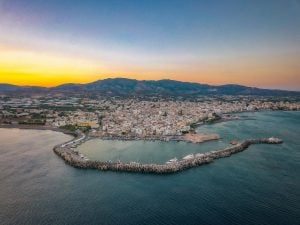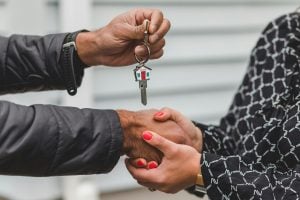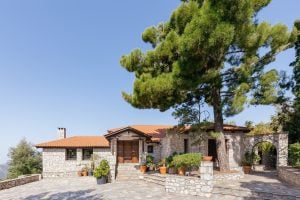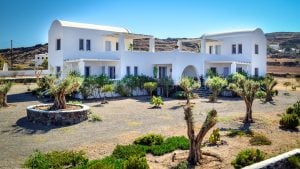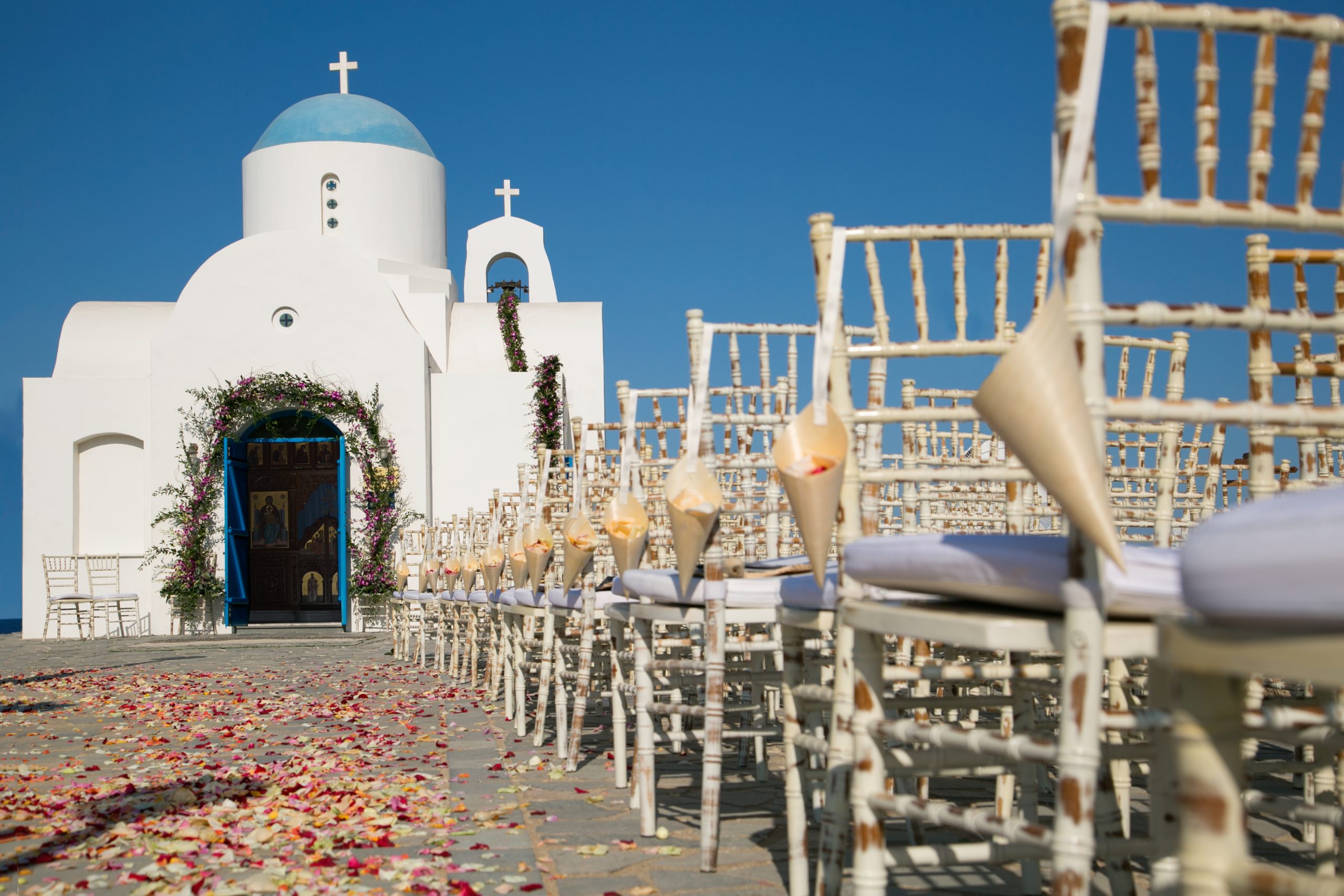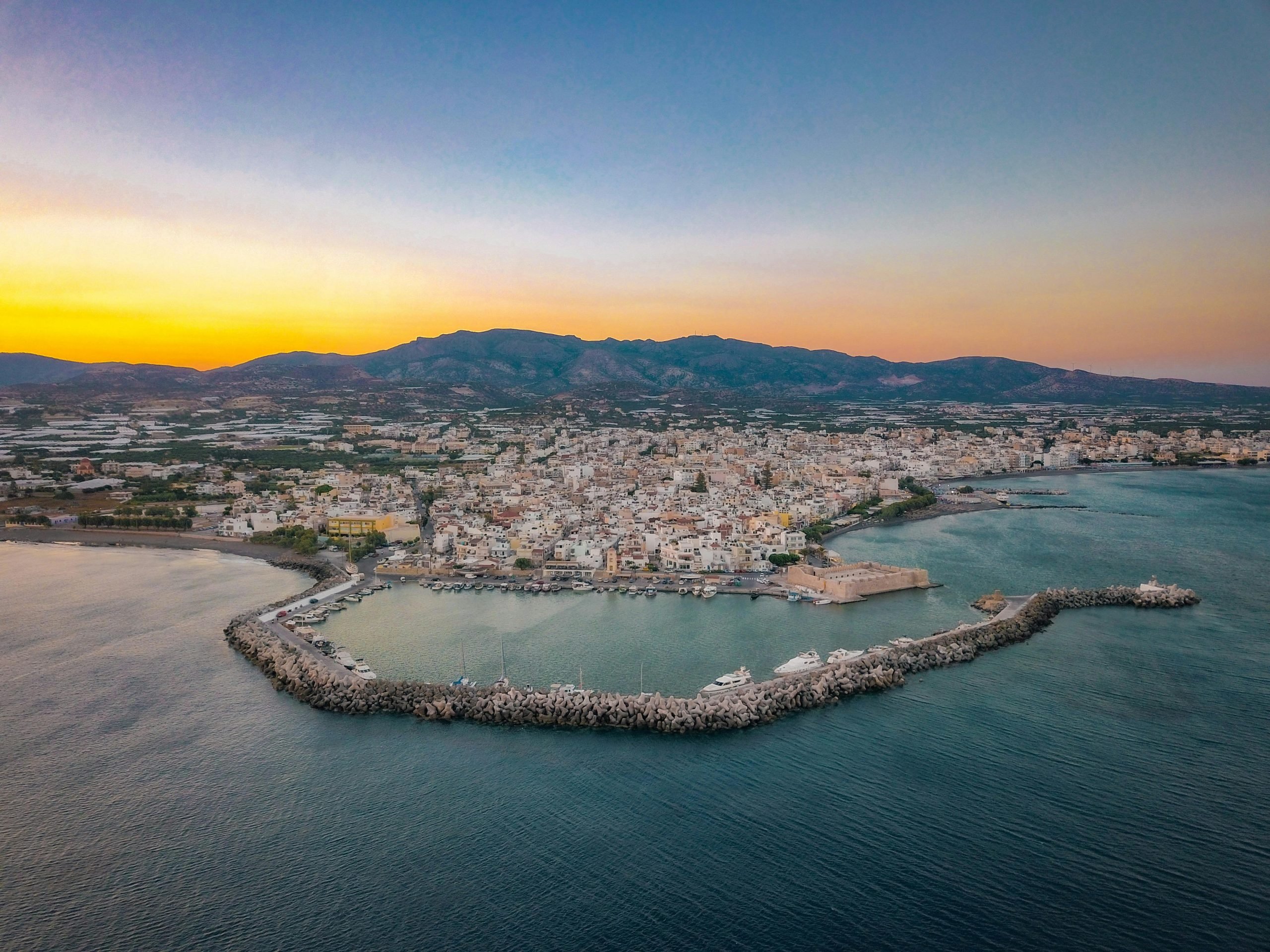Een huis kopen is altijd een grote beslissing, vooral als je koopt in een land met onbekende voorschriften, bouwnormen en gewoonten. Voor veel internationale kopers die geïnteresseerd zijn in Grieks onroerend goed, is een veelvoorkomend scenario het kiezen van onroerend goed dat off-plan wordt aangeboden of nog in aanbouw is. Dit roept veel vragen op: Hoe werkt het bouwproces in Griekenland? Waarom zien veel huizen er onafgewerkt uit? En wat moeten kopers weten als ze een huis overwegen dat nog niet af is?
Om licht te werpen op deze onderwerpen, nam een civiel ingenieur ons mee door de fasen van woningbouw op het platteland en de redenen achter enkele van de meest unieke kenmerken.
Vanaf de grond omhoog: hoe huizen worden gebouwd in Griekenland
De eerste stap in de bouw is het graafwerk. Dit betekent het voorbereiden van het land en het graven van de funderingssleuven, die de basis leggen voor alles wat komen gaat. Dan komt wat Grieken gewoonlijk de “μπετόν καθαριότητας” noemen, het slembeton, een dunne, schone laag beton die over de grond wordt gelegd voordat het funderingsbeton wordt gestort. Dit wordt gevolgd door de gewapende betonnen funderingen en het betonskelet. Dit is het structurele geraamte van het huis: de kolommen, balken en vloeren.
Zodra het beton is uitgehard, beginnen de bouwvakkers met het optrekken van de muren. Bakstenen of stenen muren worden toegevoegd om de ruimte in kamers te verdelen en het huis zijn herkenbare vorm te geven. Zodra de muren staan, wordt de interne infrastructuur geïnstalleerd: loodgieterswerk, elektrische bedrading, verwarming en isolatie. Dit wordt gevolgd door pleisterwerk, dat meestal in drie lagen wordt aangebracht. Dan volgen het dak, de ramen, deuren en vloeren. Tot slot wordt het interieur afgewerkt met tegelwerk, schilderwerk en inrichting, zodat het huis klaar is.
Hoewel het proces misschien bekend in de oren klinkt van mensen die gewend zijn aan bouwprojecten in andere landen, zijn er culturele elementen waardoor Griekse gebouwen opvallen - letterlijk.
Hoe zit het met de ijzeren staven?
Een van de meest gestelde vragen door buitenlandse kopers is: “Waarom hebben sommige Griekse huizen metalen staven die uit het dak steken?”
Deze stalen staven, die vaak zichtbaar zijn in onafgewerkte gebouwen, worden anamonés (provisies) genoemd. In tegenstelling tot wat vaak wordt gedacht, zijn ze geen teken van belastingontduiking. In plaats daarvan weerspiegelen ze een diepgewortelde traditie: de structuur open laten voor mogelijke toekomstige uitbreiding. In veel Griekse gezinnen was het gebruikelijk om een tweede of derde verdieping te plannen voor als een kind opgroeide en zijn eigen ruimte nodig had. Door het structurele “geraamte” open te laten, was het gemakkelijker -en goedkoper- om later verder te bouwen.

Half afgebouwde huizen en fiscale gevolgen
Een veel voorkomende mythe die ontkracht moet worden is de volgende: “Mensen laten hun huis opzettelijk onafgemaakt om geen belasting te hoeven betalen”. Hoewel het waar is dat een onvoltooid gebouw tegen een lager tarief wordt belast, bijvoorbeeld door minder ENFIA (onroerendgoedbelasting) en lagere gemeentelijke heffingen, is de belangrijkste reden waarom veel huizen in deze staat blijven een financiële. Simpel gezegd hebben de eigenaars misschien nog niet het geld om het werk af te maken.
Een onafgebouwd huis heeft inderdaad een lagere belastbare waarde en minder bijkomende kosten, maar het heeft ook een lagere marktwaarde. Het is geen truc om minder te betalen, maar een weerspiegeling van economische beperkingen en langetermijnplanning.
Waarom het belangrijk is om de bouw te begrijpen
Voor bedrijven zoals Elxis - At Home in Greece, die nauw samenwerken met internationale kopers, gaat het bij het kennen van het bouwproces om meer dan technische kennis; het gaat om het opbouwen van vertrouwen. Kopers die vragen stellen als: “Welke isolatie is er gebruikt?” of “Is deze muur dragend?” verdienen goed geïnformeerde antwoorden, zelfs als het huis nog steeds een blauwdruk op een tafel is.
Als verkoopteams de basisfasen van de bouw begrijpen, van het uitgraven tot de afwerking, kunnen ze kopers geruststellen, onzekerheid verminderen en een transparantere relatie creëren.
Bouwen aan woningen, bouwen aan vertrouwen
Een huis kopen in het buitenland gaat gepaard met grote verwachtingen en grotere vragen. In Griekenland, waar de bouwmethoden en culturele normen sterk kunnen verschillen van die in andere landen, is de juiste begeleiding essentieel.
Begrijpen hoe huizen worden gebouwd, waarom sommige huizen half afgebouwd blijven en wat bepaalde bouwkenmerken betekenen, is niet alleen nuttig voor aannemers; het is net zo belangrijk voor makelaars, juridische adviseurs en kopers zelf.
Uiteindelijk is een huis meer dan muren en een dak. Het is een plek voor dromen, herinneringen en toekomstplannen. En als je de funderingen begrijpt, letterlijk en figuurlijk, kun je met vertrouwen vooruit.


